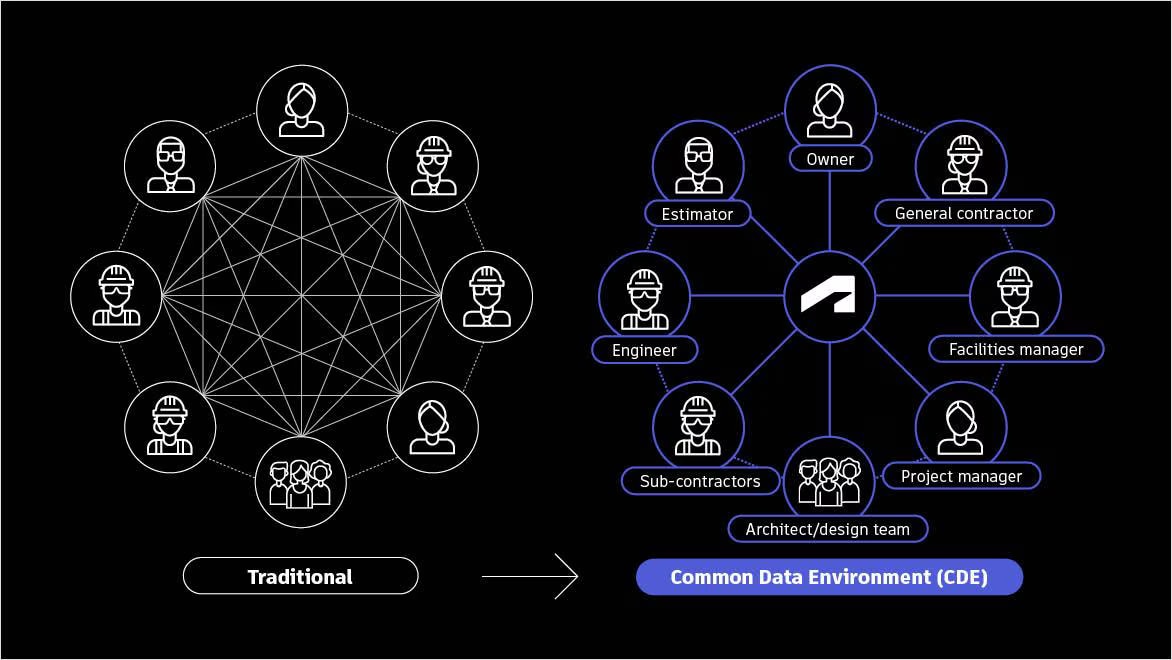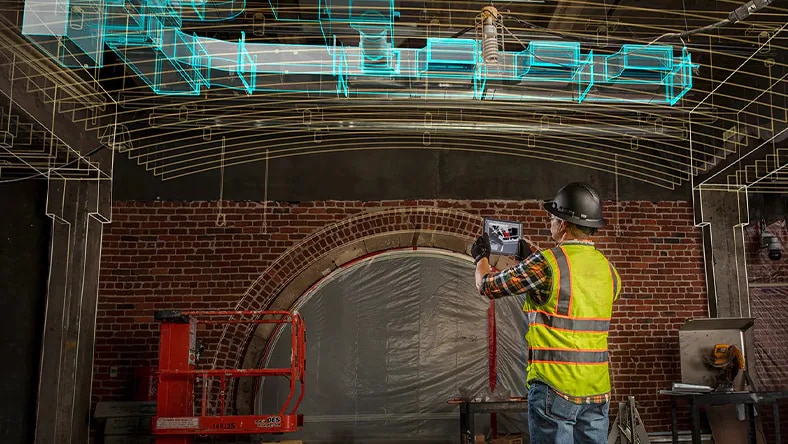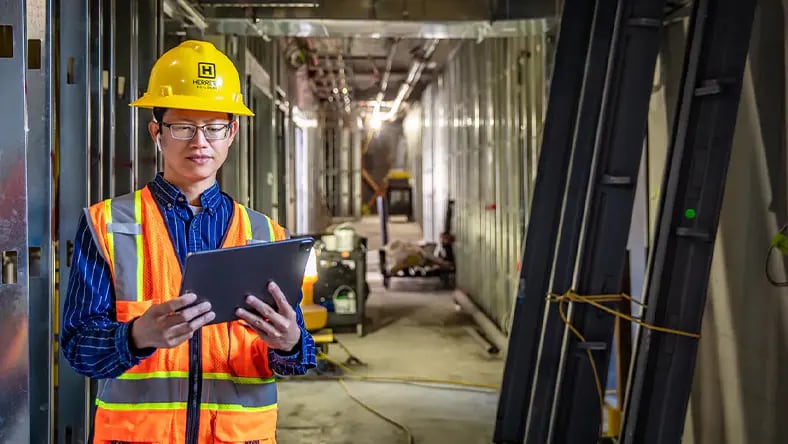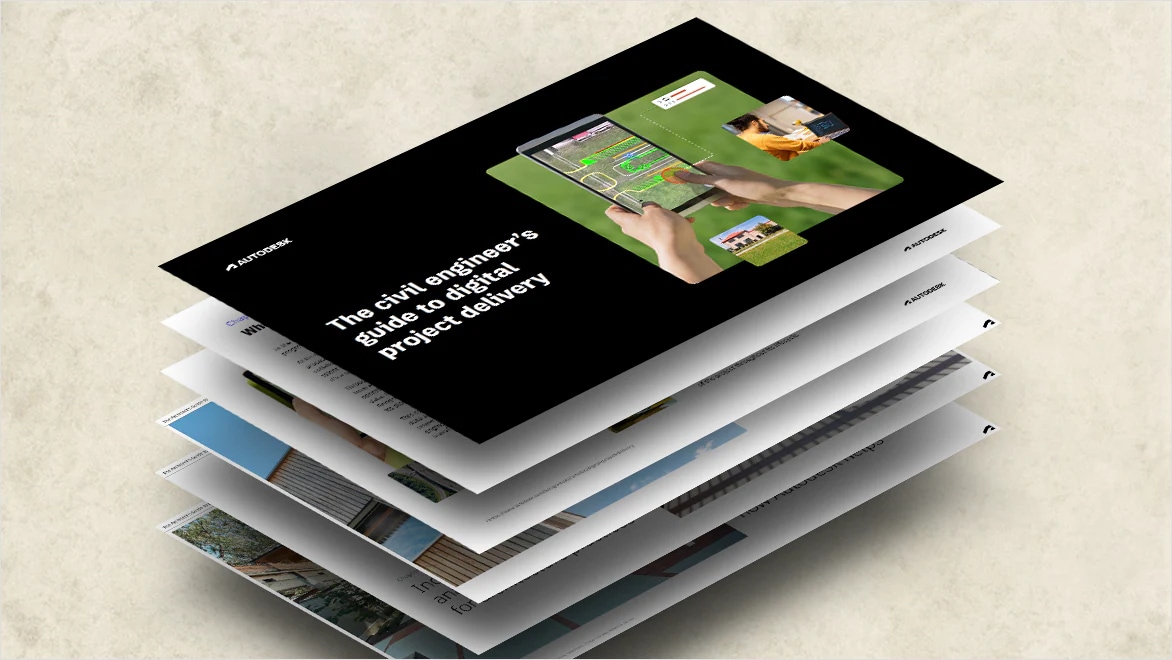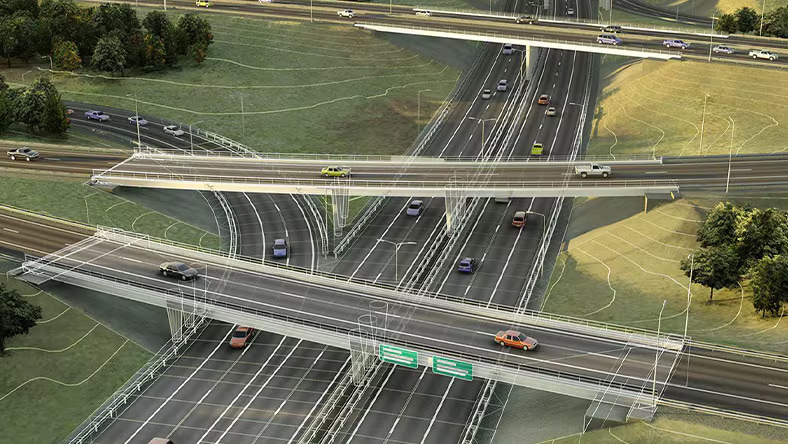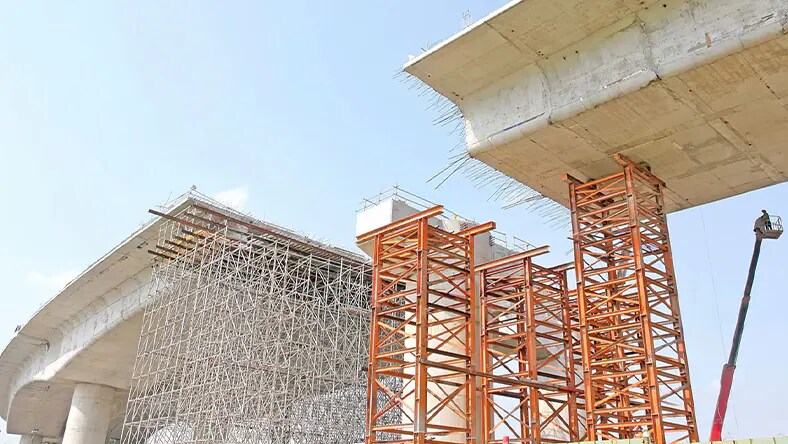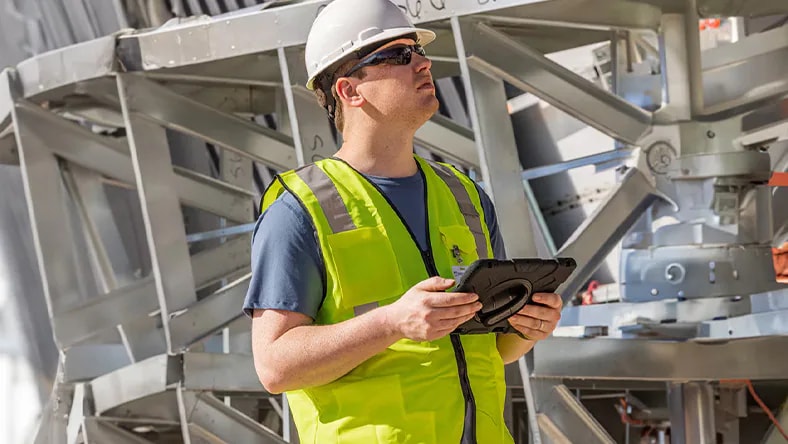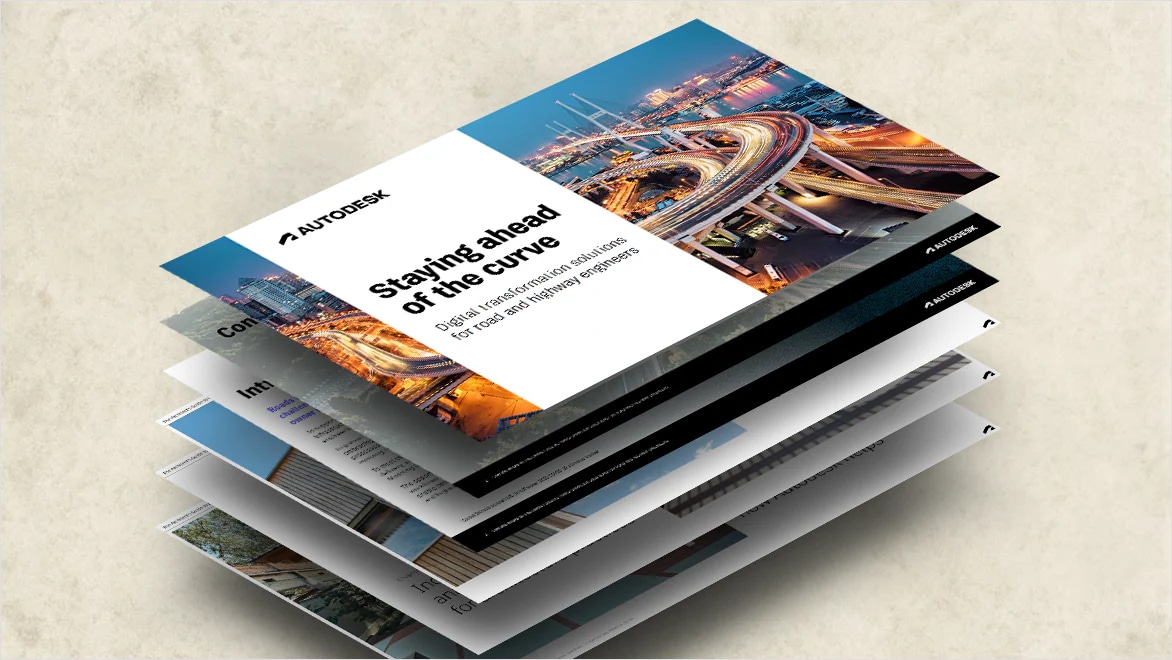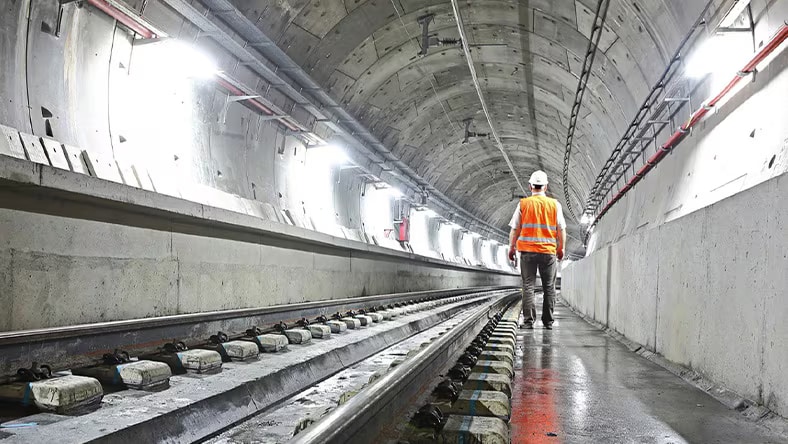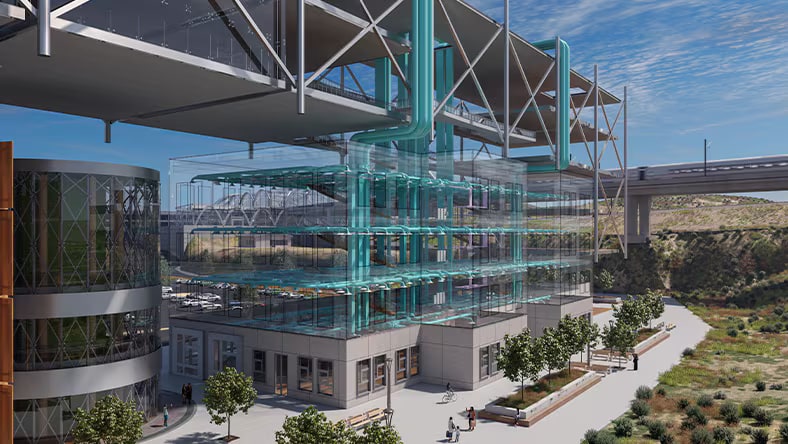& Construction

Integrated BIM tools, including Revit, AutoCAD, and Civil 3D
& Manufacturing

Professional CAD/CAM tools built on Inventor and AutoCAD
& Entertainment

Entertainment content creation tools, including 3ds Max and Maya
Digital project delivery isn't yet another tool. It's an improved, collaborative way of working for building and infrastructure projects—from plan to design to construct to operate. It connects people, data, and workflows across the project lifecycle in a secure common data environment.
Centralizing data ensures that stakeholders can access the right information, in the right format, when they need it. By integrating live, multi-discipline data, such as Building Information Modeling (BIM) and Geographic Information Systems (GIS), cost, and schedule tracking in a centralized source of truth, teams can design and iterate in parallel and manage projects efficiently while protecting intellectual property, controlling versions, and resolving issues.
This connected, interoperable environment opens the door to automation, multi-discipline workflows, and global connectivity, leading to better quality, greater productivity, and on-time and on-budget delivery.
Digital project delivery connects people, data, and processes in a shared, cloud-based common data environment (CDE), allowing teams to aggregate models and centralize data at every project stage.
Through a CDE, stakeholders can come together to plan, design, construct, and operate projects through the integration of live, multi-discipline data. This helps remove data silos and communication barriers, and means that all team members can access the right information in the right format when they need it.
Enhance productivity, optimize talent, and hasten project delivery by integrating all stakeholders in a cloud-based common data environment, allowing secure, timely, and effective data exchange in parallel.
Enhance cost, resource, and safety optimization as well as asset performance by sharing data across the team, enabling efficient work within budget and optimal decision-making at crucial project stages.
Centralize data in a common data environment for model-based handovers. These data-rich models become the foundation of a digital twin, providing visibility of how the asset, spaces, and systems operate together, and key learnings for future projects.
Our ROI calculator shows you the potential cost and time savings of implementing digital project delivery.
Answer five quick questions about your workflows and your team to get a personalized assessment in minutes. You’ll receive a full report on just how much you could save with cloud-connected collaboration.
Today’s building projects are faced with an increasingly disjointed array of tools, files, and suppliers, leading to silos, miscommunication, delays, and avoidable rework.
Too often, data is passed piece by piece, from one person to the next, in many different formats. Information is often lost or miscommunicated along the way.
Enter digital project delivery. Not a tool, but a cloud-based collaboration process that connects people, data, and workflows in a common data environment across the project lifecycle.
Architects
Digital project delivery enables architects to consolidate project data into a single source of truth, empowering them to clearly communicate their vision to clients and stakeholders—ensuring it comes to life exactly as imagined.
MEP & Structural Engineers
With digital project delivery, engineers can centralize all their documents, submit scopes, and manage correspondence and action items all in one place.
General Contractors
Working in a common data environment, general contractors gain full project visibility, allowing them to actively manage risk, schedules, quality, and costs. This reduces rework and drives higher client satisfaction.
Owners & operators
Digital project delivery brings owners and operators into the fold, giving them better visibility and control throughout the project lifecycle.
Collaborating within a common data environment during the plan stage enables:
The common data environment increases efficiency in the design stage by:
During construction, a single source of truth allows stakeholders to:
In the maintain and operate phase, stakeholders can:
As few as 10% of AECO firms currently operate from a single digital ecosystem, but those that do are shown to be more efficient, more adaptable, and more profitable.
Ready to join them? Find out how a centralized common data environment can transform your workflows in our new e-book, 3 Ways Digital Project Delivery Improves Building Projects.
Too often in road and highway projects, data starts in a silo and stays in a silo throughout the project, all the way from plan to design to construct to operate. Hundreds—maybe thousands—of models are generated, data is recreated, and files often don't work with each other. This results in inevitable mistakes and costly rework.
With digital project delivery, teams move from siloed to collaborative and connected workflows enabled by a common data environment, which gives every stakeholder access to aggregated models and centralized data at every stage. Watch our video to understand how it works.
Engineering Service Providers
With a common data environment, engineering consultants and program managers can manage documents, control access, run simulations and analysis, and track changes, improving collaboration, speeding up decision-making, and enhancing project efficiency.
Owner/Operator & Program Manager
Owners and program managers can share documents and access data-rich models within a common data environment to communicate and visualize design implementation with stakeholders.
General Contractors
Working within a common data environment provides general contractors with access to detailed insights, historical context, and improved collaboration with engineering teams at any point in the project.
Working in a common data environment allows stakeholders to:
In the design phase, digital project delivery enables collaborators to:
Working from a single source of truth enables project collaborators to:
Centralized documentation in a common data environment allows stakeholders to:
The sheer size, public impact, and extensive teams involved in building roads and highways are putting increasing pressures on project owners.
To meet these new requirements, firms should use connected solutions such as digital project delivery to ensure fast, seamless collaboration between stakeholders. Read our e-book, Staying ahead of the curve, to find out why.
Rail projects require the coordination of dozens of different disciplines and stakeholders, and are often overflowing with siloed data, incompatible files, and disconnected designs as a result. Across each project stage, the errors add up, costs overrun, delays grow longer—and the impact on the public grows.
Digital project delivery breaks through these barriers with a common data environment (CDE), coordinating multi-disciplinary teams, improving risk management, and ensuring projects stay on budget and on schedule. Watch our explainer video to find out how you can move from isolated to collaborative and connected workflows with digital project delivery.
Engineering Service Providers
Engineers can start and stay in a common data environment for improved project visibility, which leads to more informed decision-making and better collaboration with owners and general contractors.
Owners & Program Managers
Centralized document management saves owners and project managers time before, during, and after each project. It allows them time to focus on improving the project’s sustainability and environmental impact.
General Contractors
With digital project delivery, general contractors can access centralized documentation and detailed insights so that they can evaluate and provide valuable feedback at any stage of the project.
Integrating workflows in a single source of truth enables stakeholders to:
Working in a common data environment allows stakeholders to:
During construction, a single source of truth allows stakeholders to:
In the maintain and operate phase, digital project delivery enables:
Gone are the days of data siloes, fragmented processes, and communication barriers. Digital project delivery brings data, teams, and processes together across the project lifecycle, integrating live multi-discipline data and providing real-time collaboration.
From Building Information Modeling (BIM) to live links with Geographic Information Systems (GIS), every piece of information finds its place in a centralized source of truth. Explore how in our e-book, The civil engineer's guide to digital project delivery.
Cloud-based design co-authoring, collaboration and co-ordination software for architecture, engineering and construction teams. “Pro” enables anytime, anywhere collaboration in Revit, Civil 3D and AutoCAD Plant 3D.
Powerful BIM and CAD tools for designers, engineers and contractors, including Revit, AutoCAD, Civil 3D, Autodesk Forma and more
Comprehensive field and project management software that delivers a broad, deep and connected set of tools for builders.
Perform accurate 2D takeoffs and generate automated quantities from 3D models in a single online solution.
Digital Project Delivery (US Site) is a way of working in which projects are conceived planned designed built and operated in an interactive shared space in the cloud The method integrates multi-disciplinary data such as Building Information Modelling BIM (US Site) and Geographic Information System GIS (US Site) data from multiple applications in a cloud-based common data environment so that all stakeholders access including owners architects general contractors engineers tradespeople and owners By unifying teams workflows and information digital project delivery help you increase efficiency automate busy work and improve deliverable quality
Integrated project delivery (US Site) IPD is a contractual method between the owner general contractor and designer in which all project stakeholders manage and accept design and construction risk as a team IPD integrates the team responsible for delivering the project
Digital Project Delivery (US Site) DPD is a way of working together It unifies data across the entire project lifecycle in a shared cloud-based common data environment where all stakeholders collaborate in real time Digital Project Delivery be used in support of IPD but DPD methodology is broader than the contractual nature of IPD
Digital project delivery can be implemented on practically any design, engineering, or construction project using different project delivery methods. When a project is delivered, the 3D models and documentation can be used to help improve asset maintenance and operations.
Digital project delivery tools are not prescriptive, they provide flexibility. You can define your own workflows, data integrations, processes, and documentation to fit the needs of the individual project and contract.
Integrated project delivery (IPD) and design-build are both contractual agreements that define responsibility for delivering a project and managing risks. In design-build, the owner executes a single contract with a single design-build entity. The design-builder assumes responsibility for meeting the contract requirements, including spotting inconsistencies between prescriptive requirements and performance standards and reporting those to the owner and other stakeholders.
In IPD the owner, architect, and general contractor all come together in a single agreement that shares responsibility across all stakeholders. By defining the contract before the project begins, all contractors, subcontractors, and trades are in communication with the owner from the outset. Many integrated project delivery contracts include incentives for design and construction teams to foster collaboration, align on goals, and encourage lean construction management.
Digital project delivery can flexibly support integrated project delivery, design-build, and other project delivery methods.
Traditional project delivery usually keeps disciplines and tasks in separate lanes and data silos. Architects work in their applications; engineers work in theirs. Information flows in a series of waterfalls to the builders and tradespeople who turn plans in to reality. Errors missed in planning show up on site and bring work to a halt, causing a cascade of change orders and redesigns. Reviews, approvals, and document management also live in their own separate silos.
Compared to traditional project deliver, integrated project delivery is far more collaborative and efficient. The method provides a common definition of project success for all stakeholders, creates a shared outlook on risks and rewards, and enables project teams to work in parallel vs sequentially.
Our primary digital project delivery tool is Autodesk BIM Collaborate Pro which runs in the Autodesk Construction Cloud Together they connect the full range of Autodesk architecture engineering modelling and construction applications into an integrated interactive environment
Here are some but not all of the Autodesk tools that be used for digital project delivery
There are many ways to manage AEC projects From spreadsheets email and shared drives to cloud-based services like Autodesk BIM Collaborate Pro that integrates data from AEC applications document-management systems and schedules into a single cloud environment For help measuring the pros and cons Which AEC collaboration solution is right for you
Autodesk Construction Cloud is a comprehensive digital project delivery platform that brings together multiple design and construction modules into an integrated solution It provides a centralised source of truth for all project data and streamlines workflows enabling collaboration across the entire project lifecycle The platform includes solutions for project management design management construction scheduling field management cost management and more
Autodesk BIM Collaborate Pro is a cloud-based offering that specifically focuses on collaboration and coordination for building information modelling BIM workflows BIM Collaborate Pro is a bundle of modules accessible in the Autodesk Construction Cloud These modules include Docs Design Collaboration and Model Coordination BIM Collaborate Pro enables project stakeholders the ability to share project information in real-time in a centralised source of truth reducing errors and rework and ensuring that everyone is working from the latest data BIM Collaborate Pro a digital project delivery solution helps improve collaboration ensuring the timely delivery of projects
In summary Autodesk Construction Cloud provides a comprehensive solution for design and construction across the project lifecycle while BIM Collaborate Pro focuses specifically on BIM collaboration and coordination
